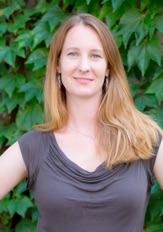Courses Taught
BI107: Principles of Biology I
BI108: Principles of Biology II
BB522: Techniques in Cell and Molecular Techniques (Co-Taught with Prof Tom Gilmore)
BI/MB697: A Bridge to Knowledge, Seminar in Pedagogy for New Teaching Fellows in Biology
The Learning Assistant Program
During the fall 2011 semester, I started the Learning Assistant Program within our Introductory Biology course. This program runs in conjunction with the Departments of Chemistry and Physics. The LA program is an initiative to improve undergraduate STEM education that was developed at the University of Colorado at Boulder with National Science Foundation funding. I employ high-performing undergraduate students to help with teaching Introductory Biology labs after they have successfully completed the course. LAs assist course staff in teaching the lab sections, while being trained how to teach by School of Education Faculty. More information about the LA program at Boston University can be found here. More about the international Learning Assistant Alliance can be found here.
Selected Publications
Spilios, KE, ed. (2018). Principles of Biology II. Hayden-McNeil. Plymouth, MI.
Williams LM, LE Fuess, JJ Brennan, KM Mansfield, E Salas-Rodriguez, J Welsh, J Awtry, S Banic, C Chacko, A Chezian, D Dowers, F Estrada, Y-H Hsieh, J Kang, W Li, Z Malchiodi, J Malinowski, S Matuszak, T McTigue IV, D Mueller, B Nguyen, M Nguyen, P Nguyen, S Nguyen, N Njoku, K Patel, W Pellegrini, T Pliakas, D Qadir, E Ryan, A Schiffer, A Thiel, SA Yunes, KE Spilios, JH Pinzón C, LD Mydlarz, TD Gilmore (2018). A conserved Toll-like receptor-to-NF-κB signaling pathway in the endangered coral Orbicella faveolata. Developmental & Comparative Immunology 79: 128-136.
Spilios, KE, ed. (2017). Principles of Biology I. Hayden-McNeil. Plymouth, MI.
Knight, MT, P Garik, A Moser, N Hammond, EM Jariwala, K Spilios, A Seliga, A Duffy, D Dill, and BB Goldberg (2013). Investigating the effect of peer teachers on learning environments in large STEM courses, National Association of Research on Science Teaching (NARST): Rio Grande, Puerto Rico.
Spilios, K, M Knight, EM Jariwala, A Moser, T Hunt, A Knaub, A Duffy, P Garik, and N. Gross. (2013). The Boston University Experience of Beginning a Learning Assistant Program in Science Courses. National Science Teachers Association (NSTA) National Conference: San Antonio.
Gardner, K.E., T.D Seeley, and N.W. Calderone. (2008). Do Honey Bees Have Two Discrete Dances to Advertise Food Sources? Animal Behaviour, 75: 1291-1300.
Gardner, K.E. (2007). A scientific note on the directional accuracy of the waggle dance over the course of a day. Apidologie, 38: 312-313.
Gardner, K.E., T.D. Seeley, and N.W. Calderone (2007). Directional imprecision in the honey bee’s waggle dance: Considering adaptive and non-adaptive hypotheses. Entomologia Generalis, 29: 285-298.
Gardner, K.E., R.L. Foster, and S. O’Donnell. (2007) Experimental analysis of worker division of labour in bumblebee nest thermoregulation (Bombus huntii, Hymenoptera: Apidae). Behavioral Ecology and Sociobiology, 61: 783-792.
Gardner. K.E. (2006) Aspects of Foraging in Bees: Apple Pollination, Native Bee Populations, and Honey Bee Communication. Ph.D. Thesis, Cornell University.
Gardner, K.E. and J.S. Ascher (2006). Notes of the native bee pollinators in New York apple orchards. Journal of the New York Entomological Society, 114: 86-91.
Gardner, K.E., C.L. Klass and N.W. Calderone (2004). The Bee Files.



